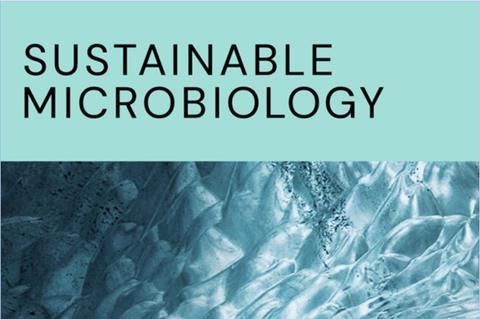Applied Microbiology International has published the first policy paper in its newly launched journal Sustainable Microbiology.
The paper, ‘Evaluating the National Action Plan (NAP) on antimicrobial resistance, and recommendations for the next 5-year NAP: a roundtable discussion ‘ is by AMI policy team members Lucky Cullen and Daisy Neale and was published on January 17.

The paper focused on the UK’s current 5-year National Action Plan (NAP) on tackling antimicrobial resistance (AMR), which runs from 2019 to 2024 and is therefore coming to an end.
The next 5-year NAP is currently under development, and progress made towards the UK’s commitments on AMR is being analysed. This analysis has involved the publication of an addendum to the current NAP, which includes some new and revised commitments.
Roundtable discussion
The latest paper comes in the wake of a roundtable discussion held by AMI in November 2022, which invited UK experts from across the human and animal sectors to discuss their thoughts on progress to date, as well as any recommendations and key considerations they thought should be taken forward.
“Overall, it was agreed that there is a major disparity between the increasing ambitions of the NAP, and the reducing financial support for achieving said ambitions. The gap between evidence generation and implementing recommendations into real-world settings also presents a key challenge to overcome, if the NAPs commitments are to be achieved,” the authors said.
“A lack of communication and funding appear to underpin many of the barriers that prevent the successful delivery of current NAP commitments and are therefore highlighted as key areas of concern for policymakers to consider when looking to tackle AMR. The focus should be on successfully implementing and delivering the current NAP commitments ahead of identifying future ambitions.”
Published content
January 2024 saw the launch of the first published content in Sustainable Microbiology, AMI’s new open access journal, which will apply microbiology to sustainability.
AMI is welcoming submissions of policy papers to Sustainable Microbiology, including those from other learned societies and academic groups.
Papers will fall into two categories - Policy in Practice manuscripts and Policy Briefings.
Policy in Practice
“Policy in Practice manuscripts can vary in style. The most common documents we envisage are case studies, for example which demonstrate microbiological application to underpin policy and decision-making for delivering impacts on sustainability,” said Director of Publishing Kathryn Spiller.
Policy documents will undergo editorial review only, but submissions will require an explicit statement to (i) confirm that policy content has been peer-reviewed by a wider community, e.g. a Society, Committee, Advisory Group, prior to submission; and (ii) an accompanying statement that outlines this peer-review process, e.g. how an Advisory Group reviewed and approved the policy. This information can be included in an Acknowledgement section.
As with all submissions, Policy in Practice manuscripts will require a Sustainability Statement, outlining which of the UN SDGs it contributes to.
If authors would like to discuss with an editor prior to submission, please contact the editorial office at sumbio.editorialoffice@oup.com.
Policy Briefings
Meanwhile, Policy Briefings should be short, policy-related pieces outlining the microbiological evidence used to support development of policy material and recommendations, typically fewer than 1,000 words.
Policy documents will undergo editorial review only, but submissions will require an explicit statement to (i) confirm that policy content has been peer-reviewed by a wider community, e.g. a Society, Committee, Advisory Group, prior to submission; and (ii) an accompanying statement that outlines this peer-review process, e.g. how an Advisory Group reviewed and approved the policy. This information can be included in an Acknowledgement section.
As with all submissions, Policy Briefings will require a Sustainability Statement, outlining which of the UN SDGs it contributes to.
You can read the first editorial from Editor-in-Chief, David Pearce introducing the Journal, alongside our first research, reviews and policy papers all published in the inaugural volume.
The Journal will use a continuous publication model, publishing new content in the first Volume throughout the year, so make sure you sign up for alerts and don’t miss new articles as they are published.
To find out more about submitting papers, visit the journal.







No comments yet